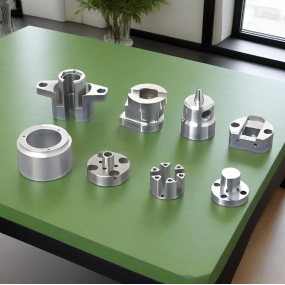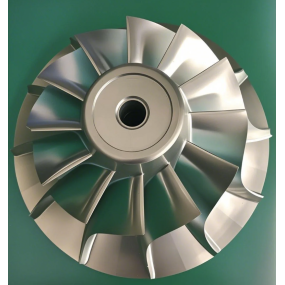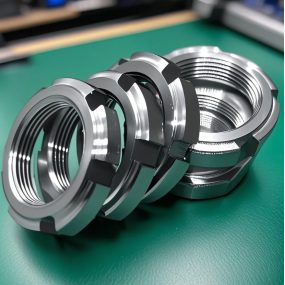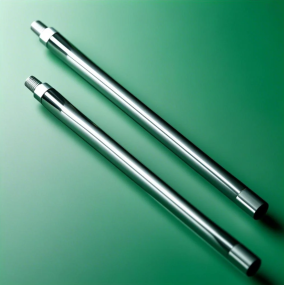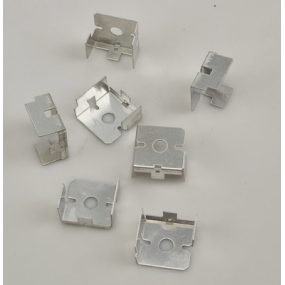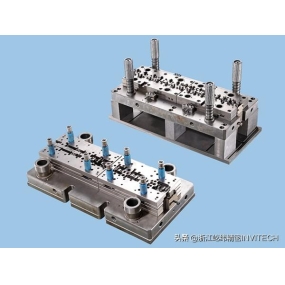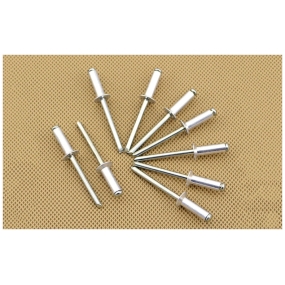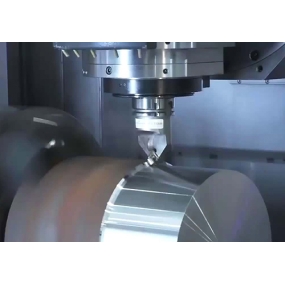1. Process Optimization < unk > Cutting Optimization: · Adjustment of rotational speed and feed speed: Titanium alloy processing plant balances rotational speed and feed speed according to factors such as selected tool, material hardness and machining depth to ensure that the processing efficiency is improved as much as possible under the premise of meeting quality requirements. · Tool path design: High-speed cutting, high-efficiency cutting and smooth cutting are adopted to reduce cutting force, reduce tool wear and improve cutting efficiency. 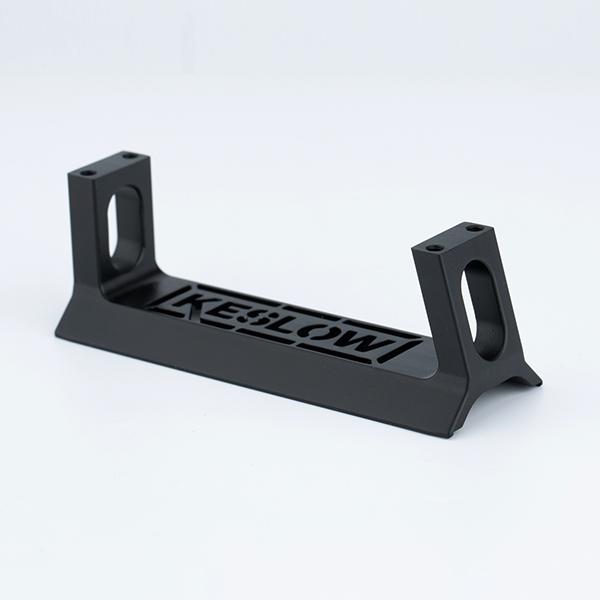 < unk > Forging process optimization: · Titanium alloy processing plant formulates a reasonable forging process: including key parameters such as heating temperature, heating time, deformation, cooling method, etc., to ensure the quality of titanium alloy forgings. · Strictly control the process execution: ensure that the process parameters are accurately executed, to avoid the occurrence of quality problems due to improper operation or parameter fluctuations. Second, equipment upgrade Introduction of numerical control processing equipment: numerical control processing equipment adopts computer control technology, which can achieve efficient, precise and flexible processing process. Compared with traditional manual processing, it can significantly improve the processing accuracy and processing efficiency. Installation of intelligent control system: Ruyouji IPS intelligent adaptive control and protection system, which can adjust the operating efficiency of the machine in real time according to the real-time processing conditions, improve the processing efficiency and protect the tool. III. Management of raw materials and dies. Quality control of raw materials: Titanium alloy processing plants select high-quality titanium alloy raw materials to ensure that the chemical composition, metallographic structure, mechanical properties, etc. of raw materials meet relevant standards, and conduct strict inspections. Mold management: Regular inspection and maintenance of molds to ensure their precision and stability to ensure the quality of forgings. IV. Heat treatment and surface treatment. Formulate a reasonable heat treatment process: According to the type of titanium alloy and the performance requirements of forgings, formulate a corresponding heat treatment process to ensure that the performance of titanium alloy forgings meets the design requirements. Surface treatment control: Select an appropriate surface treatment method and strictly control the process parameters to ensure that the surface quality after treatment meets the requirements. V. Finished product inspection and quality assessment < unk > Conduct comprehensive inspection: Titanium alloy processing plant conducts strict quality inspection of finished titanium alloy forgings, including inspection of size, appearance, performance and other aspects. < unk > Introduce non-destructive detection technology: such as ultrasonic inspection, X-ray inspection and other means to evaluate the internal quality of the forgings to ensure that the product meets the design requirements and conditions of use. VI. Personnel training and management skills training: Titanium alloy processing plant conducts regular skills training for operators to improve their operation skills and efficiency. < unk > Quality management awareness training: Strengthen the quality management awareness of employees to ensure that each employee can understand and follow Quality Standards and requirements.
< unk > Forging process optimization: · Titanium alloy processing plant formulates a reasonable forging process: including key parameters such as heating temperature, heating time, deformation, cooling method, etc., to ensure the quality of titanium alloy forgings. · Strictly control the process execution: ensure that the process parameters are accurately executed, to avoid the occurrence of quality problems due to improper operation or parameter fluctuations. Second, equipment upgrade Introduction of numerical control processing equipment: numerical control processing equipment adopts computer control technology, which can achieve efficient, precise and flexible processing process. Compared with traditional manual processing, it can significantly improve the processing accuracy and processing efficiency. Installation of intelligent control system: Ruyouji IPS intelligent adaptive control and protection system, which can adjust the operating efficiency of the machine in real time according to the real-time processing conditions, improve the processing efficiency and protect the tool. III. Management of raw materials and dies. Quality control of raw materials: Titanium alloy processing plants select high-quality titanium alloy raw materials to ensure that the chemical composition, metallographic structure, mechanical properties, etc. of raw materials meet relevant standards, and conduct strict inspections. Mold management: Regular inspection and maintenance of molds to ensure their precision and stability to ensure the quality of forgings. IV. Heat treatment and surface treatment. Formulate a reasonable heat treatment process: According to the type of titanium alloy and the performance requirements of forgings, formulate a corresponding heat treatment process to ensure that the performance of titanium alloy forgings meets the design requirements. Surface treatment control: Select an appropriate surface treatment method and strictly control the process parameters to ensure that the surface quality after treatment meets the requirements. V. Finished product inspection and quality assessment < unk > Conduct comprehensive inspection: Titanium alloy processing plant conducts strict quality inspection of finished titanium alloy forgings, including inspection of size, appearance, performance and other aspects. < unk > Introduce non-destructive detection technology: such as ultrasonic inspection, X-ray inspection and other means to evaluate the internal quality of the forgings to ensure that the product meets the design requirements and conditions of use. VI. Personnel training and management skills training: Titanium alloy processing plant conducts regular skills training for operators to improve their operation skills and efficiency. < unk > Quality management awareness training: Strengthen the quality management awareness of employees to ensure that each employee can understand and follow Quality Standards and requirements.
Hello! Welcome to EMAR's website!
 English
English » »
» »
 Spanish
Spanish Arabic
Arabic Portuguese
Portuguese Belarusian
Belarusian Japanese
Japanese Russian
Russian Icelandic
Icelandic Bulgarian
Bulgarian Azerbaijani
Azerbaijani Estonian
Estonian Irish
Irish Polish
Polish Persian
Persian Boolean
Boolean Danish
Danish German
German French
French Filipino
Filipino Finnish
Finnish Korean
Korean Dutch
Dutch Galician
Galician Catalan
Catalan Czech
Czech Croatian
Croatian Latin
Latin Latvian
Latvian Romanian
Romanian Maltese
Maltese Malay
Malay Macedonian
Macedonian Norwegian
Norwegian Swedish
Swedish Serbian
Serbian Slovak
Slovak Slovenian
Slovenian Swahili
Swahili Thai
Thai Turkish
Turkish Welsh
Welsh Urdu
Urdu Ukrainian
Ukrainian Greek
Greek Hungarian
Hungarian Italian
Italian Yiddish
Yiddish Indonesian
Indonesian Vietnamese
Vietnamese Haitian Creole
Haitian Creole Spanish Basque
Spanish Basque


